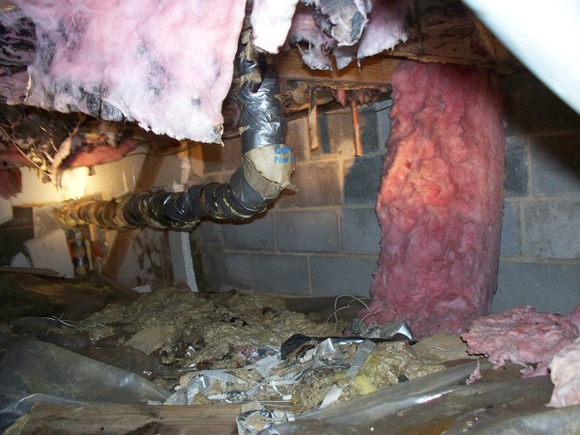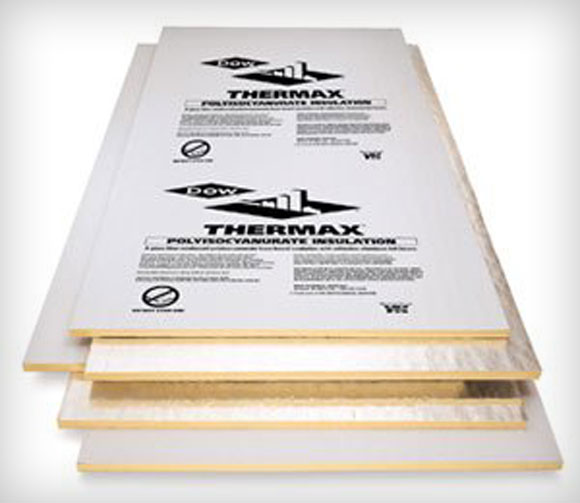Common Problem: Energy Loss

Advanced Energy’s closed crawl space research has inspired homeowners and contractors across the country to encapsulate crawl spaces. Their breakthrough research in North Carolina, and pilot studies in Flagstaff, Arizona and Baton Rouge, Louisiana, have proven closed crawl spaces are more energy efficient than vented ones.According to Cyrus Dastur, one of Advanced Energy’s lead closed crawl space building scientists, many contractors are making a big mistake by not insulating theirsealed crawl space projects. “They don’t understand they need to insulate the crawl space to make it energy efficient,” he says. “Not just close it with plastic.”
Home Energy January 2005_low res2
Moisture Performance of Closed Crawl Spaces
www.advancedenergy.org/portal/crawl_spaces
The Insulation Solution

Once a crawlspace is air sealed, it needs to be insulated. If the crawl space ceiling is insulated with fiberglass batts and those batts are in good condition, we will leave them in place. However, if they are wet or full of mold and mildew we will remove the damaged insulation and dispose of it.Regardless of whether the insulation is removed or not, Carolina Energy Conservation follows the experts’ advice and insulates the walls. If your crawl space is encapsulated, it’s generally recommended to insulate the walls. Whether your crawl space is ventilated or unventilated, encapsulation and air sealing is extremely important. Air sealing and insulation are services that often go together because air leaks can compromise the performance of insulation!Carolina Energy Conservation understands the importance of air-sealing and insulating the crawl space. Prior to insulating, air sealing is vital. Failing to air seal is like running your furnace in the middle of winter with your windows wide open. And air sealing not only keeps conditioned air in the house, it also keeps moisture out.

Almost every building scientist agrees that that insulating the crawl space ceiling (the living space floor system), is a bad idea.Why should you insulate your crawl space? Why is crawl space insulation so important? Well, If your crawl space isn’t well insulated, you are paying higher energy bills every month to heat against outdoor air that is entering your crawlspace. You wouldn’t open your windows and try to heat your home, would you?
If your crawl space is encapsulated, it’s generally recommended to insulate the walls. Whether your crawl space is ventilated or unventilated, encapsulation and air sealing is extremely important. Air sealing and insulation are services that often go together because air leaks can compromise the performance of insulation!

Is crawl space insulation worth the cost? In a word, yes! Crawl space insulation as part of anencapsulation systems offer a number of different benefits beyond just improving your home’s energy efficiency. In addition to lowering your monthly bills, crawl space insulation:
- Makes your home more comfortable year round
- Can eliminate problems like frozen pipes, wood rot, mold and mildew growth, and high humidity levels
- Increases the market value of your home – most buyers favor energy efficiency above other things
- Improves the overall performance and extends the life of your HVAC systems by reducing the latent load on the unit.
Building Science Corporation (BSC) has a lot of excellent information on crawl space encapsulation in general and specifically, crawl space insulation. https://buildingscience.com/documents/information-sheets/crawlspace-insulation Carolina Energy Conservation insulates in accordance with BSC. We either use spray foam or use THERMAX™ Sheathing is specially designed to have a Class A fire rating and can be used in a range of concealed and exposed applications, above and below grade. It has nominal 1.0 mil, smooth aluminum foil facers on both sides. A Carolina Energy Conservation crawl space specialist can discuss which option is best for your home during the free, no obligation crawl space assessment.
